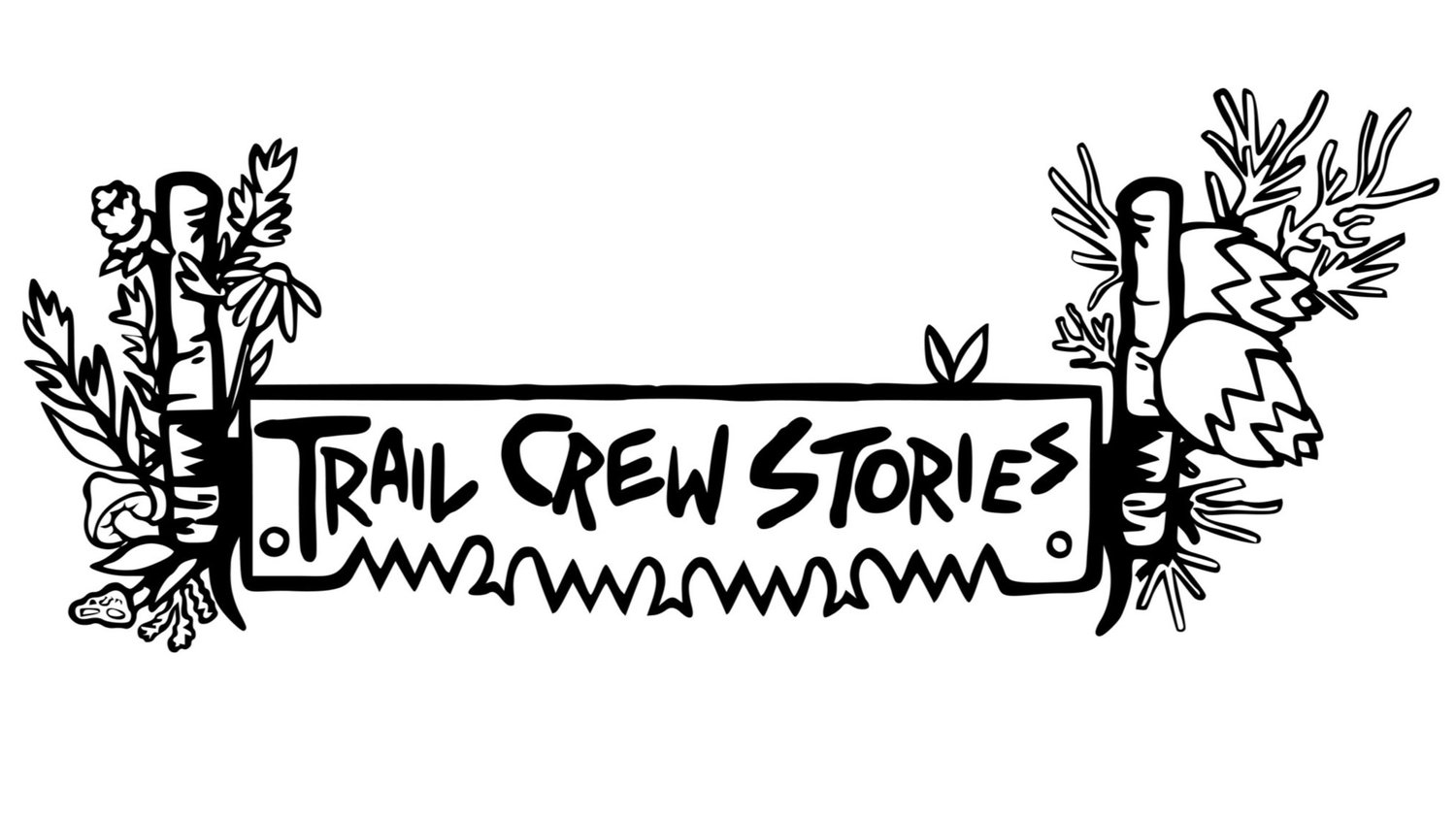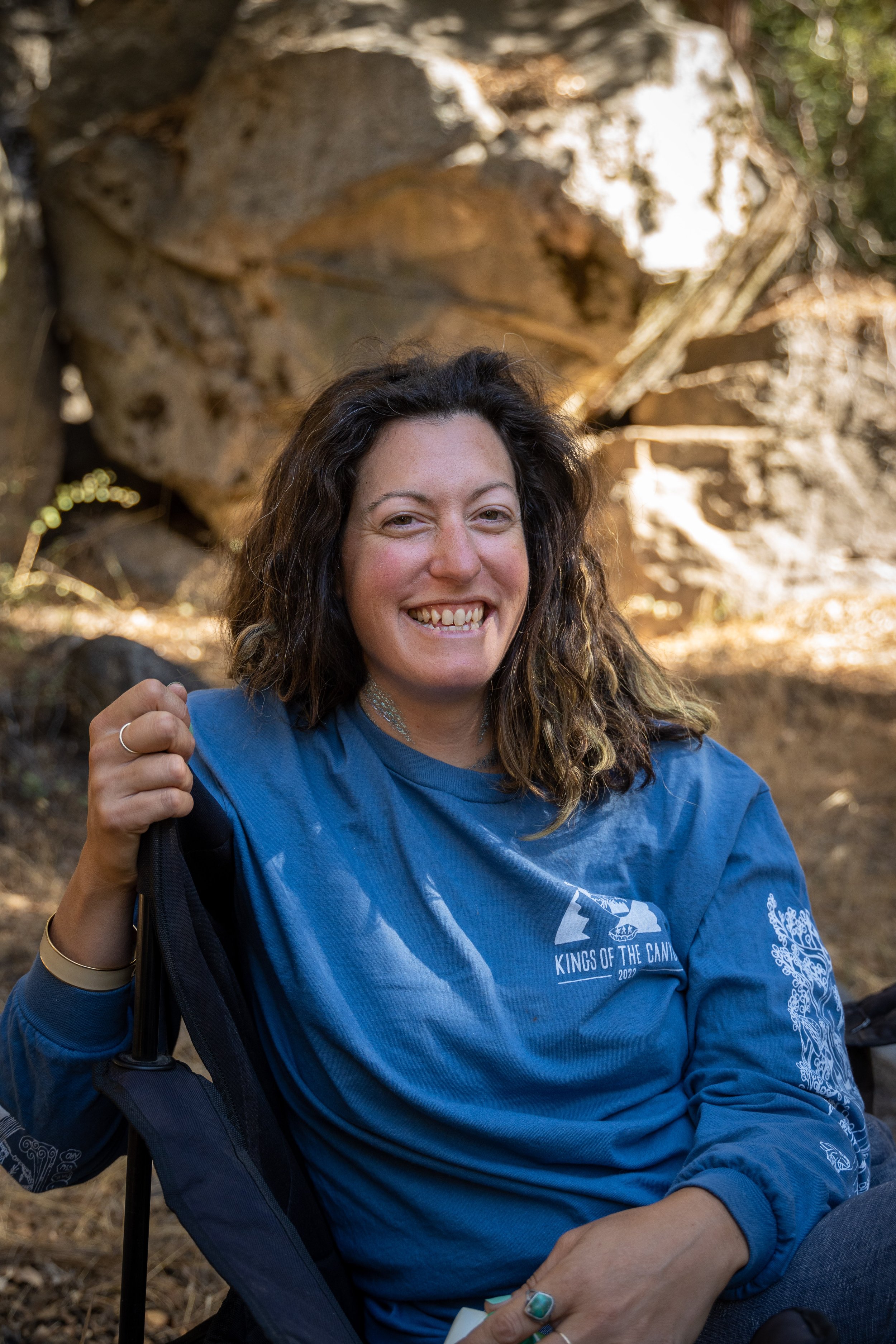Christina Morse: Feeding Others, and Being Fed Upon
Within the niche world of trails, there are some jobs that are even more specialized. Packers and cooks provide crucial support for backcountry crews; the former supply crews with food and equipment, while the latter plan and make meals for voracious crews burning huge amounts of calories on the job. For conservation corps crews toiling in rugged conditions for ridiculously low pay, mealtimes are often the glue holding crews together, where folks can relax, chit chat, and settle into the comfort of a hot meal.
On a recent visit to Kings Canyon National Park, I met Christina Morse, who has been working in the backcountry for 11 years, 10 of them as a backcountry cook. Christina shared some insight about what it takes to feed others in the backcountry, as well as a wild tale of when an angry bat conspired to feed upon her…
Joe: As a backcountry cook for trail crews, you have a niche job within a niche field. What does that entail?
Christina Morse: I work for the National Park Service as a cook for the California Conservation Corps Backcountry Trails Program. I usually serve between 18 and 22 people. I make them breakfast, I make them dinner. And the rest of the time, I'm just hiking around having a good time and whatnot.
I plan the menus myself and I submit the food orders for the pack string. All of the food is hauled in on mules about once a week. For a typical crew, it’s about eight mule loads of food and propane. Each load is about 150 pounds, so you can do the math from there.
The math: 8 x 150 = 1,200 lbs per week of food delivered by mule.
J: What is your typical day like?
C: I'll usually wake up at four or earlier, then I'll show up in the kitchen at 4:30. We will make breakfast which is usually done by six. The crew will come in and have breakfast and then we do chores. And then people go off to their various PT (physical training), which involves a combination of strength training and stretching. After PT, we'll circle up again, talk about our work plan, what we're doing for the day, and the crew will go out on the grade.
“Out on the grade” is a trails idiom referring to going out to the worksite; it derives from 19th and 20th century railroad workers working on the railroad grade.
Then myself and the KP—which…we're not sure if that stands for kitchen person, kitchen patrol, no idea— but the KP is the person who works with me during the day—we'll talk about what their specific chores are for the day. I’ll work on anything that I need to do as far as food orders or party prep.
I'll usually leave camp around 10am and go have a break. I’ll read, do some yoga, take a bath, wash my clothes, hang out, work on my tan. It's lovely. About 2:30 pm, I'll go back to the kitchen and we’ll start making dinner, which we’ll generally serve around 5:30.
J: What does your kitchen setup look like?
C: When we're above 10,000 feet, our kitchen is in a canvas tent. The one that we're working with right now is a canvas 11 ft x 13 ft tent. I have two four-burner propane stoves. I have these bear boxes that serve as the counters. We usually have about four Yeti Coolers for all the cold stuff. We have these really interesting canvas bags that our packers made 10 years ago that store all of our utensils and plates and things, which is very nice. I like to have the crew make some art for the tent to make it less boring on the inside.
J: How did you end up in this job?
C: 11 years ago, I was applying to all of these jobs to work outside because that's always something I've known that I needed to do. Once I got into the backcountry in Klamath National Forest, I just immediately knew, ‘this is it.’ And once I learned that there was someone who I would cook for these crews, I knew I wanted to do that. I just said, ‘Okay. See you next year. I need a job. Give me a job.’ I just kept harassing them.
And they said, ‘Oh, no, no, we don't hire corps members after their first season.’ But I just kept bugging them. And I got hired.
I was in Klamath for four seasons total, and have done seven in Kings Canyon.
J: Any crazy stories from this 11-year period?
C: A couple of years ago, a bat attacked me and bit me. I was up in Kearsarge. I was just sitting there, chillin’, weekend attire, shoes off, reading a book, hanging out. I saw something out of the corner of my eye shoot straight into my neck and into my hair. Then it started chattering and squeaking and I thought, ‘oh shit.’ It was about 4:30 in the afternoon, so the bat was probably rabid. It would fly away from me, 10 or 15 feet in the air and then just dive at me multiple times. It was confusing. The bat landed on my lower back where I couldn’t see it. I hit it with the back of my hand, but not too hard because it was really cute. But after I hit it the first time it bit me. Then I hit it a lot harder, and it hit the ground. But it continued to just dive at me. At that point, I just made a run for my tent, where the bat continued to attack me outside of my tent while I put on several layers of clothing, and boots.
I waited till the bat kind of just left my intent area and then ran over to camp. When I got there, the bat was attacking our sponsor, Kyle. I started yelling ‘that bat bit me!’
They picked up Crazy Creek chairs and started using them as giant swatting devices. The bat landed on Kip in the same spot. Everyone was freaked out. Everyone went to hide in the kitchen tent and we blocked off the door. It was like a horror movie. The bat continued to attack the tent for a full hour, you could just hear it flinging itself against the canvas.
We got on the radio, saying ‘hey, this bat just bit someone. What do we do?’ They didn't know. They kept telling us we need to capture the bat and keep the brain intact. No, we thought, we will never go out there and capture this bat that is actively attacking us.
After the bat stopped attacking the tent, we went on little missions with each other, all armed with our Crazy Creeks to gather everyone's sleeping gear. We all slept in a tent together, because we were so freaked out. We didn't know if the bat was still out there. If we had to pee, we would go out into teams.
The helicopter came at about eight in the morning to pick us up. Me and Kip, who I had just met, both had to fly away in the helicopter to the Fresno hospital, where they also were very confused about how to deal with the situation.
I had to get a whole series of shots. I got shots in both arms, then four injections around the bite itself. Then I had to come back three days later, then seven days later, then 21 days later for additional rounds of shots.
But the helicopter ride was incredible, it was fun.
J: Any other thoughts or comments?
C: We need cooks. Packers too. We need help. It’s getting harder to find people. The wages of these jobs are not really keeping up with what’s going on in the world. A lot of people are leaving because of it. That’s the real and sad truth. If something doesn’t happen with the wages, it’s going to be hard to get the job done.
It’s interesting because trail crew mostly does not want you to know that we exist, and if we’re doing a good job you never know we’re here. But it’s not really helping us. It’s a hard line, because most of us like to stay hidden.



